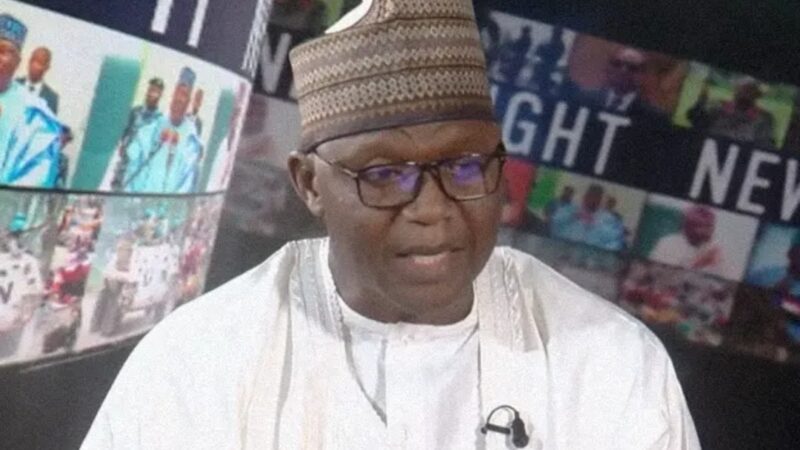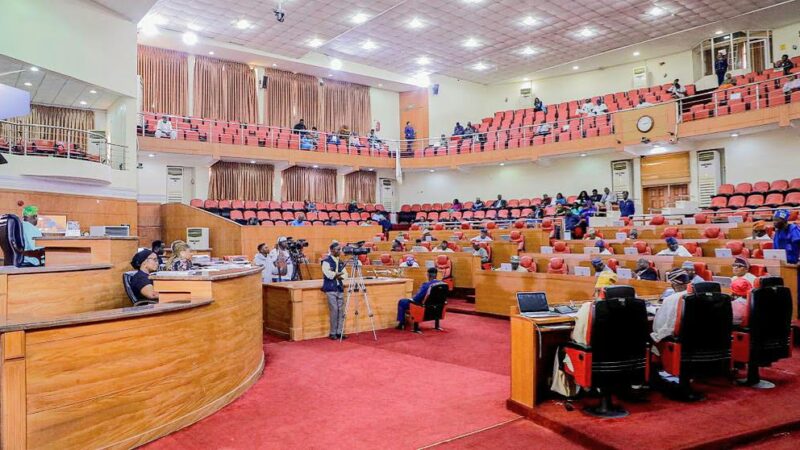MACRO ECONOMIC STABILITY
By Boniface Chizea
I have no doubt that we have all heard of the importance of macroeconomic stability for the growth and development prospects of any nation particularly the Nigerian situation. The business man is able to manage risk but not uncertainty which macroeconomic instability portends. But at no time has the imperatives of this concept been brought forcefully home to us as it is now happening in this time of unprecedented economic trauma.
I was just going through some repairs at home and was engaged with my plumber on some conversation about the high prices of items which of course is duly reflected in the index of the rate of inflation in the economy now estimated by the National Bureau of Statistics at 33. 69% as at April, 2024; the highest rate of inflation in period of over twenty years.
The records indicate that inflation hitherto was highest in 1995 (72%) and lowest in 2007 (5.38%). We bemoaned the difficulty those in the market are encountering with being able to determine the price to tag to items they sell. My artisan particularly fingered the difficulties caused by the fluctuating and gyrating rate of exchange and how it has constituted a nightmare for marketers.
The marketers confront the dilemma of having to determine the price to tag to items since no one is sure what the rates will be when it is time to restock. Therefore, as a result most marketers are refusing to import adopting a wait and see attitude which poses the present danger of looming scarcity. Often the responsibility for the maintenance of price stability in an economy is wrong headedly assigned to the Central Bank. Yes, the core responsibility of the Central Bank is the maintenance of price stability but even then the CBN is not able to do that alone. There has to be complementarity with the Fiscal authorities for there to be any chance of achieving success. For instance, the Fiscal authorities cannot be pursuing expansionary fiscal policy as it is currently the case in Nigeria and we expect the Central Bank to conjure the magic wand to be able to sustain price stability. But the reality on ground today is that the focus is on attaining a sustainable rate foreign exchange which will not upset the apple cart as was already beginning to happen and might still happen as we are not in the clear yet. What is common knowledge as accepted by most is that the only reliable strategy for the support of the exchange rate is a productive economy which is surely not going to happen overnight not even in near term.
The issue of instability in Nigeria was forcefully brought home to all during the recent African Chief Executive Officers convention which was held in Kigali, Rwanda capital. During an interactive discussion program which involved our own Aliko Dangote (The Richest Man in Africa) and the CEO of TotalEnergies Patrick Pouyanne, the MD disclosed to the chagrin of all that the Company has decided to undertake an investment of a whopping sum of $6 billion in Angola instead of Nigeria which in his opinion has the most prolific region in terms of oil prospecting around the Niger Delta because of the problem relating to policy instability. He explained that TotalEnergies has not conducted oil exploration in Nigeria for the past twelve years due to this problem of lack of policy stability. He argued that in Nigeria we are forever discussing policy changes and tinkering with policy without taking our time to put a framework around the policy environment which creates a veritable nightmare for investors.
What is rather worrisome is that recently as we are on the run down to the celebration of the first anniversary of this administration that the experience has been that of knee jerk policy pronouncements. If we take a look at the most recent constitution of the boards of tertiary institutions, there are already complaints that boards with existing life span were also dissolved which clearly offends the law guiding the operations of those institutions which no doubt will result to a revisit of the composition of those boards. We are already discussing changes with the recent policy on electricity tariffs. On that note I listened carefully to a brilliant suggestion by Atedo Peterside that all that was required was to step up the tariffs as the rate of consumption increased. As should be expected the consumption rate of the poor who do not contend with equipment that will consume much can then be captured and taken care off as the charges are graduated based on the rate of consumption.
But where I believe that we need urgent attention is this regard is the gyrating rates of exchange. Every day, almost every hour the social media is replete with accounts of what is happening to the rates. And as we observed above, though what is happening has beneficial effect in the sense that it will impact the market psychology whereby hitherto there was no risk in taking a bet on what is likely to happen to the rates; with the current developments that is no longer the case. And that certainly creates a dilemma for speculators. I have no doubt in my mind that some speculators have had their fingers burnt with the recent developments. But the situation is hardly conducive for the marketers as it is impossible to handle as planning becomes intractable.
And what is surprising is that the monetary authorities appear to be oblivious of this challenge in the manner they have conducted their affairs. Let’s take for instance the issue of the rates to adopt for the calculation of import duties at the ports. The authorities would seem to be in celebratory mood as they send and altar the rates frequently which Custom officials will use for the calculation of duties. It appears that there is an urge to play to the gallery to be seen to have embraced fully an illusory free market. But the reality of the situation is that we end up making it impossible for stakeholders to get a handle on what the reality of the situation.
It is also important to highlight the fact that with 750 bases hike on base interest rate over a duration of three meetings by the Monetary Policy Committee, which now make the rates stand at an unprecedented high of 26.25% coupled with the requirement that banks should maintain Cash Reserve Requirement of 45% and Liquidity ratio of 30% that businesses are challenged to source and to be able to afford the cost of credit. This is particularly so for the Micro, Small and Medium scale enterprises which really constitute the engine room for the growth and development of the Nigeria economy. Therefore, saying the obvious this is certainly a major downside of these policy initiatives which is not salutary as it adds to the misery in the land as businesses go out of operations, unemployment increases and therefore purchasing power plummets.
We now seem to have concentrated so much on demand management and therefore it is time to complement that with policy thrusts that will also address the supply side. Food inflation is soaring at a high of 40% on a year-on-year basis. What policy measures have we put in place to counter insecurity so that farmers can return to the farms? The cost of transportation from the farms to the market is highly influenced by the price of diesel. We believe that the price of diesel is now coming down thanks to supply from Dangote Refinery. Following the recent hike in electricity tariffs, reports have it that some businesses have folded up as they are not able to afford the bills! It is important that the recently announced tariff regime is revisited with a view to reducing it to more realistic levels because we cannot have policies that have such negative consequences. Such a development is dangerous and most certainly not sustainable. What is important for the authorities to bear in mind is that policy must have a human face because the welfare of the citizenry must remain the utmost objective of policy otherwise we might reap a harvest of protests which is inimical to the peace, stability, development and overall good governance of in the polity.
Dr Chizea writes from Lagos.







